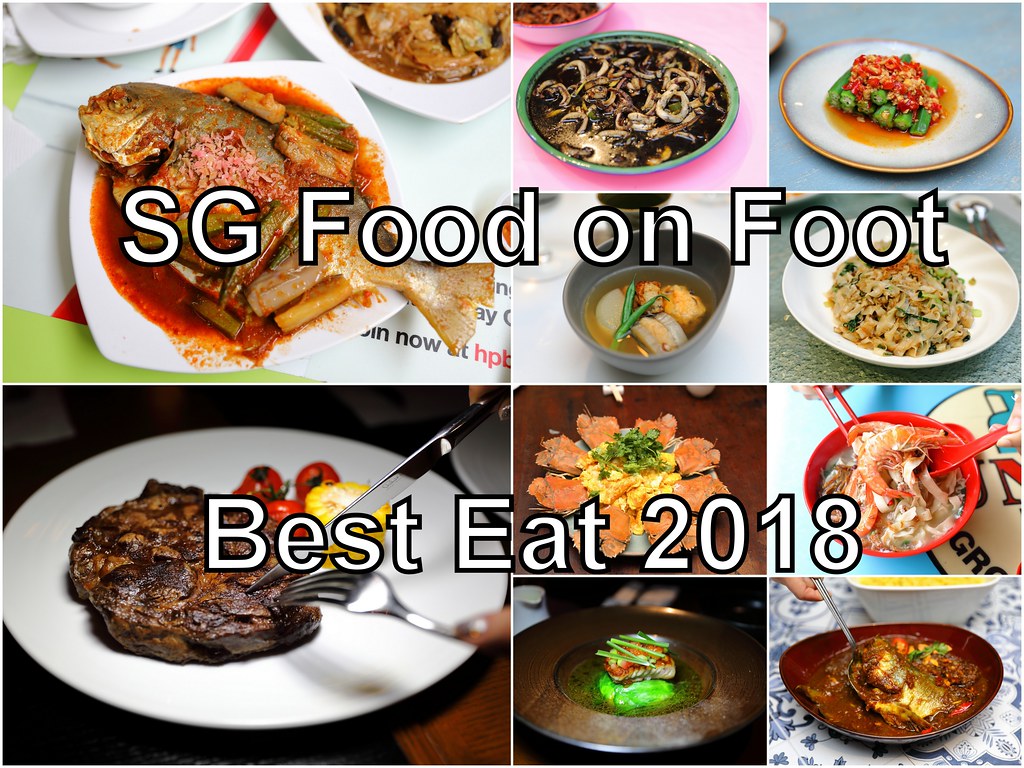How to eat for stronger immunity is a vital aspect of maintaining overall health and resilience against illnesses. By understanding the key nutrients and incorporating immune-boosting foods into your daily diet, you can significantly enhance your body’s natural defenses. This guide offers practical insights into nutritional foundations, superfoods, dietary patterns, lifestyle practices, hydration, and foods to avoid, providing a comprehensive approach to strengthening immunity through diet.
Nutritional Foundations for Immune Support

Maintaining a robust immune system is essential for overall health and resilience against infections. Proper nutrition provides the foundation for optimal immune function, ensuring that the body has the necessary nutrients to defend itself effectively. Incorporating a variety of nutrient-rich foods into daily meals can significantly enhance immune responses and promote long-term health.
Key vitamins and minerals such as vitamin C, vitamin D, zinc, and probiotics play pivotal roles in supporting immune health. These nutrients help modulate immune cell activity, reduce inflammation, and strengthen the body’s natural defenses. A balanced intake of these essential nutrients, combined with a healthy lifestyle, can lead to improved immunity and better protection against illnesses.
Foods Rich in Immune-Enhancing Nutrients
Consuming a diverse array of foods that are high in vital vitamins and minerals ensures that your immune system receives adequate support. Below is a detailed list of foods that are particularly effective in boosting immunity, along with their nutrient contents and recommended serving sizes.
| Food Item | Nutrient Content | Serving Size |
|---|---|---|
| Oranges | Vitamin C: approximately 70 mg per medium orange | 1 medium (131g) |
| Red Bell Peppers | Vitamin C: 152 mg per half cup (92g) | ½ cup (92g) |
| Kiwi | Vitamin C: 71 mg per fruit (69g) | 1 medium (69g) |
| Eggs | Vitamin D: 41 IU per large egg; Zinc: 0.6 mg per egg | 1 large |
| Sardines (canned in oil) | Vitamin D: 272 IU per 3 oz; Zinc: 1 mg per 3 oz | 3 oz (85g) |
| Sunflower Seeds | Zinc: 1.5 mg per ounce (28g) | 1 ounce (28g) |
| Yogurt (probiotic-rich) | Probiotics: varies by strain and quantity; generally 1-10 billion CFUs per serving | 1 cup (245g) |
| Sauerkraut | Probiotics: rich in beneficial bacteria; varies by preparation | ½ cup (68g) |
| Garlic | Allicin compounds contribute to immune support | 1-2 cloves (3g each) |
| Broccoli | Vitamins C and E, antioxidants, fiber | 1 cup cooked (156g) |
To effectively incorporate these foods into your daily routine, consider meal planning strategies that include fresh fruits and vegetables in breakfast, salads, and snacks. Snack ideas such as mixed nuts with dried apricots or yogurt with berries can boost nutrient intake. Incorporating garlic into stir-fries and using fortified foods or supplements for vitamin D may also enhance immune support. Regularly rotating these nutrient-rich options ensures a balanced intake of essential vitamins and minerals necessary for optimal immune function.
Superfoods and Herbal Boosters for Immunity
Incorporating specific superfoods and herbal boosters into your diet can significantly enhance your immune defenses. These nutrient-dense ingredients are rich in bioactive compounds that support immune function, reduce inflammation, and promote overall health. By understanding their unique benefits and optimal ways to consume them, you can effectively harness their potential to strengthen your body’s natural defenses.
Superfoods such as garlic, ginger, turmeric, and berries have long been celebrated for their immune-boosting properties. Their active compounds work synergistically to stimulate immune cells, combat oxidative stress, and provide anti-inflammatory effects. Combining these ingredients into daily meals or beverages can be an effective strategy for maintaining robust immunity, especially during seasonal changes or periods of increased vulnerability.
Benefits of Superfoods for Immune Support
These superfoods contain potent bioactive compounds that have documented immune-enhancing effects:
- Garlic: Rich in allicin, garlic exhibits antimicrobial, antiviral, and anti-inflammatory properties, helping to activate immune cells and reduce infection risks.
- Ginger: Contains gingerol, which has antioxidant and anti-inflammatory effects that support immune regulation and soothe sore throats.
- Turmeric: Curcumin, its primary active compound, modulates immune responses and reduces chronic inflammation.
- Berries: High in vitamin C, flavonoids, and antioxidants, berries bolster immune cell activity and protect against oxidative damage.
Regular consumption of these superfoods, whether raw, cooked, or as part of beverages, can help maintain a resilient immune system. Their versatility allows for creative incorporation into a variety of recipes, making consistent intake practical and enjoyable.
Comparison Table of Superfoods, Active Compounds, and Consumption Methods
| Superfood | Active Compounds | Optimal Consumption Methods |
|---|---|---|
| Garlic | Allicin | Raw in salads, lightly cooked in dishes, or as garlic-infused oil |
| Ginger | Gingerol | Fresh in teas, smoothies, or incorporated into stir-fries and baked goods |
| Turmeric | Curcumin | Powdered in teas, smoothies, or added to curries and rice dishes with black pepper for better absorption |
| Berries (e.g., blueberries, strawberries) | Vitamin C, Flavonoids | Fresh in smoothies, cereals, or as toppings in yogurt and salads |
For enhanced absorption, combining turmeric with black pepper or consuming ginger and garlic alongside healthy fats can improve bioavailability of their active compounds. Including these superfoods regularly in your diet can help create a formidable immune defense system.
Preparing Herbal Teas and Smoothies for Maximum Absorption
Strategic preparation and combination of these superfoods in beverages can optimize their health benefits. Here are guidelines to craft effective herbal teas and smoothies:
- Herbal teas: Steep freshly grated ginger or turmeric slices in boiling water for 10-15 minutes. Add a squeeze of lemon and a pinch of black pepper to enhance the absorption of curcumin and gingerol. Sweeten lightly with honey for additional antimicrobial benefits.
- Smoothies: Blend together berries, fresh ginger, a small piece of turmeric root (or powder), and a tablespoon of healthy fats such as avocado or flaxseed. Including a source of vitamin C, like orange juice, can further support immune function. For best absorption, consume smoothies soon after preparation to retain nutrient potency.
Maximize bioavailability by pairing turmeric with black pepper and consuming ginger and garlic with healthy fats. These combinations facilitate better absorption of key active compounds, ensuring your immune system receives the full benefit of each superfood.
By consistently integrating these herbal boosters into your daily routine through teas and smoothies, you can enjoy their immune-enhancing effects in a delicious and convenient manner, supporting your health proactively.
Dietary Patterns Supporting Strong Immunity

A balanced dietary approach plays a vital role in strengthening the immune system. Emphasizing dietary patterns such as the Mediterranean diet and plant-based diets can significantly enhance immune resilience by providing essential nutrients, antioxidants, and anti-inflammatory compounds. Adopting these eating patterns not only supports current immune health but also promotes overall well-being and long-term disease prevention.Consistent consumption of nutrient-rich foods from these dietary frameworks encourages optimal immune function.
These diets prioritize whole, minimally processed foods, a variety of fruits and vegetables, healthy fats, nuts, seeds, legumes, and lean proteins. Transitioning to such patterns can be achievable through mindful planning and gradual adjustments, fostering sustainable habits that complement immune health.
Adopting the Mediterranean and Plant-Based Diets for Immunity
The Mediterranean diet, inspired by the traditional eating habits of countries bordering the Mediterranean Sea, emphasizes plant-based foods, healthy fats, moderate fish, poultry, dairy, and limited red meat. Its high content of monounsaturated fats, omega-3 fatty acids, antioxidants, and fiber contributes to reduced inflammation and improved immune responses.Plant-based diets, focusing on fruits, vegetables, nuts, seeds, legumes, and whole grains, are rich in phytochemicals, vitamins, and minerals crucial for immune support.
These diets tend to be lower in saturated fats and processed foods, reducing systemic inflammation and oxidative stress. Incorporating a variety of these nutrient-dense foods ensures a robust supply of immune-enhancing compounds.
Sample Weekly Meal Schedule Highlighting Immune-Friendly Meals
Designing a weekly meal plan that emphasizes immune-supporting foods can help establish healthy eating patterns. The following schedule includes meals rich in vitamins C and D, zinc, antioxidants, and probiotics—all essential for maintaining resilient immunity. Each meal combines flavors, nutrients, and wholesome ingredients to promote overall health.
| Day | Breakfast | Lunch | Dinner |
|---|---|---|---|
| Monday | Oatmeal topped with mixed berries, chia seeds, and a drizzle of honey. Berries provide vitamin C, while chia offers omega-3s. | Quinoa salad with chickpeas, cucumber, cherry tomatoes, spinach, and olive oil lemon dressing. Rich in zinc, antioxidants, and fiber. | Grilled salmon with roasted sweet potatoes and steamed broccoli. Salmon supplies omega-3s, while broccoli offers vitamin C and sulforaphane. |
| Tuesday | Smoothie with spinach, banana, Greek yogurt, flaxseeds, and orange slices. Yogurt contains probiotics, and citrus provides vitamin C. | Whole grain wrap with hummus, roasted vegetables, and mixed greens. Contains healthy fats, fiber, and phytochemicals. | Lentil soup with garlic, carrots, and kale. Lentils are rich in zinc, and garlic exhibits immune-boosting properties. |
| Wednesday | Whole grain toast with avocado, tomato slices, and a boiled egg. Provides healthy fats and vitamin D. | Stir-fried tofu with broccoli, bell peppers, and brown rice. Tofu supplies plant-based protein, and peppers add vitamin C. | Baked chicken breast with quinoa and sautéed spinach. Offers lean protein and nutrient-dense greens. |
| Thursday | Chia pudding with almond milk and fresh fruit. Rich in omega-3s and antioxidants. | Vegetable and bean chili with a side of cornbread. Beans supply zinc and fiber, supporting gut health. | Seafood pasta with garlic and cherry tomatoes in olive oil. Combines omega-3s and lycopene for immunity. |
| Friday | Greek yogurt with walnuts, honey, and sliced kiwi. Kiwis are high in vitamin C and antioxidants. | Stuffed bell peppers with quinoa, black beans, and diced vegetables. Offers fiber, vitamins, and minerals. | Turkey stir-fry with mixed vegetables and brown rice. Lean protein with immune-supportive veggies. |
| Saturday | Whole grain pancakes topped with blueberries and a dollop of yogurt. | Salad with mixed greens, smoked salmon, avocado, and lemon vinaigrette. Rich in omega-3s and healthy fats. | Vegetable curry with chickpeas served over basmati rice. Provides fiber, zinc, and phytochemicals. |
| Sunday | Scrambled eggs with spinach and whole grain toast. | Grilled vegetable and hummus pita with a side of fruit salad. | Baked cod with roasted root vegetables and sautéed kale. Supports omega-3 intake and nutrient diversity. |
Procedural Steps for Transitioning to Immune-Supportive Dietary Patterns
Adopting these healthful dietary patterns requires mindful and gradual adjustments, ensuring sustainability and enjoyment. The following procedural steps provide a practical framework for transition:
- Assess Current Eating Habits: Identify existing dietary strengths and areas needing improvement, focusing on increasing intake of fruits, vegetables, and whole grains.
- Set Realistic Goals: Define achievable milestones, such as introducing plant-based meals twice a week or replacing processed snacks with nuts and fresh fruit.
- Plan Weekly Menus: Prepare meal plans that incorporate immune-friendly ingredients, ensuring variety and nutritional adequacy.
- Gradually Replace Less Healthy Choices: Transition by substituting processed foods with whole-food alternatives, reducing red meat, and increasing plant-based proteins.
- Educate and Experiment: Learn new recipes, explore diverse ingredients, and seek inspiration from culinary sources emphasizing health and flavor.
- Monitor Progress and Adjust: Keep track of dietary changes, noting improvements in energy levels and overall health, and refine the plan as needed for continued success.
Lifestyle Practices Complementing Immune-Boosting Diets
While proper nutrition forms the foundation of a robust immune system, integrating healthy lifestyle practices is essential for maximizing immune resilience. Habits such as sufficient sleep, effective stress management, and regular physical activity work synergistically with dietary choices to enhance overall immunity. Developing a structured routine that incorporates these elements can lead to a more resilient and balanced immune response, reducing susceptibility to illnesses and supporting long-term health.
Adopting consistent, health-promoting routines ensures that the benefits of immune-supportive foods and supplements are fully realized. These practices not only bolster immune function directly but also improve mental well-being and physical vitality, creating a holistic approach to health maintenance. Combining lifestyle habits with strategic nutrition fosters a resilient immune system capable of responding effectively to various stressors and pathogens.
Adequate Sleep and Restful Routines
Sleep plays a crucial role in regulating immune function, with chronic sleep deprivation linked to increased inflammation and decreased immune cell activity. Quality sleep facilitates the production of cytokines—proteins that help combat infections and inflammation—and supports the regeneration of immune cells. Establishing a consistent sleep schedule enhances immune resilience and overall well-being.
To promote restful sleep, consider the following routines:
- Maintain a regular sleep schedule by going to bed and waking up at the same times daily, even on weekends.
- Create a relaxing pre-sleep routine, such as reading or practicing gentle stretching, to signal your body that it’s time to wind down.
- Limit exposure to screens and blue light at least one hour before bedtime to improve sleep quality.
- Keep the bedroom environment cool, dark, and quiet to facilitate deeper rest.
“Prioritizing sleep is an investment in immune health, mental clarity, and physical recovery.” – National Sleep Foundation
Stress Management and Emotional Well-being
Chronic stress negatively impacts immune function by elevating cortisol levels, which can suppress the activity of immune cells and increase vulnerability to infections. Effective stress management techniques are vital for maintaining immune competence and emotional resilience.
Implementing structured stress reduction routines can include:
- Practicing mindfulness meditation or deep breathing exercises daily to reduce cortisol levels and promote relaxation.
- Engaging in activities that bring joy and fulfillment, such as hobbies, social interactions, or creative pursuits.
- Allocating time for regular breaks during workdays to prevent burnout and mental fatigue.
- Utilizing physical activities like yoga or tai chi that combine movement with mental focus and stress relief.
“Managing stress effectively is as important as nutrition in maintaining a resilient immune system.” – American Psychological Association
Regular Physical Activity
Consistent moderate exercise enhances immune defense by promoting healthy circulation, facilitating immune cell movement throughout the body, and reducing systemic inflammation. Conversely, intense or excessive exercise without adequate recovery can suppress immune function, making balanced activity levels essential.
Incorporating a balanced exercise routine involves:
- Engaging in at least 150 minutes of moderate-intensity aerobic activity weekly, such as brisk walking, cycling, or swimming.
- Including strength training exercises twice a week to support overall health and immune function.
- Adding flexibility and balance practices like yoga or stretching to improve physical resilience and reduce injury risk.
- Ensuring rest days are part of the routine to allow immune recovery and prevent overtraining.
“A well-rounded exercise routine not only improves physical health but also enhances immune competence.” – World Health Organization
Creating a Balanced Routine for Immune Optimization
Integrating these lifestyle habits into daily life requires intentional planning and consistency. Structuring your day to include dedicated times for sleep, stress management, and physical activity ensures these practices become sustainable. For example, setting an alarm for regular sleep hours, scheduling brief mindfulness sessions during breaks, and planning physical activity sessions in advance can foster adherence and maximize benefits.
When designing your routine, consider your personal preferences and daily commitments to ensure it is realistic and enjoyable. Combining these practices with an immune-supportive diet creates a comprehensive approach to health, empowering you to maintain optimal immunity and overall vitality.
Hydration and Its Impact on Immunity

Maintaining optimal hydration is a fundamental aspect of supporting a robust immune system. Water plays a crucial role in numerous physiological processes, including the transportation of nutrients, regulation of body temperature, and the elimination of toxins. Adequate hydration ensures that immune cells function efficiently, enabling the body to respond swiftly and effectively to pathogens.
Dehydration can impair immune responses, leading to sluggish recovery from illnesses and increased susceptibility to infections. Therefore, understanding the importance of hydration and incorporating smart beverage choices into daily routines can significantly enhance immune health.
Guidelines for Daily Water Intake and Beverage Choices Supporting Immunity
Achieving proper hydration involves both the amount and quality of fluids consumed each day. While individual needs vary based on age, activity level, climate, and health status, general guidelines can serve as a useful starting point.
- Drink at least 8 cups (about 2 liters) of water daily, adjusting upward in hot climates or during vigorous physical activity.
- Consume beverages that contain natural electrolytes, such as coconut water, to aid in hydration and electrolyte balance.
- Limit sugary drinks and those with artificial additives, as they can promote inflammation and hamper immune function.
- Include herbal teas and infused waters to diversify fluid intake while benefiting from additional immune-supportive compounds.
Comparison of Water Sources, Infused Drinks, and Herbal Infusions
Different beverage options contribute uniquely to hydration and immune health. The following table delineates their benefits to facilitate informed choices:
| Water Sources | Infused Drinks | Herbal Infusions |
|---|---|---|
| Pure Water: Best for hydration; contains no calories or additives. Essential for cellular functions and toxin elimination. | Fruit or Vegetable-Infused Water: Enhances flavor without added sugars; provides vitamins and antioxidants from fruits like lemon, cucumber, or berries. | Herbal Teas: Rich in bioactive compounds; supports immune modulation through ingredients like chamomile, echinacea, or ginger. |
| Mineral or Spring Water: Contains essential minerals such as magnesium and calcium that support metabolic processes. | Electrolyte-Enhanced Drinks: Restores electrolyte balance after sweating; beneficial during illness or intense exercise. | Medicinal Herbal Infusions: Used traditionally to bolster immune responses; can be tailored for specific needs, such as peppermint for digestion or elderberry for cold prevention. |
| Filtered Tap Water: Provides clean hydration; affordable and accessible. | Flavored Waters: Often contain natural extracts; avoid artificial sweeteners for immune benefits. | Decoctions of Dried Herbs: Concentrated extracts that can provide potent immune-boosting effects when prepared properly. |
Avoiding Immune-Weakening Foods

Maintaining a strong immune system requires not only including supportive foods but also minimizing or avoiding those that can impair immune function. Certain dietary choices, when frequent or excessive, may weaken the body’s natural defenses, making it more vulnerable to infections and illnesses. Recognizing these immune-weakening foods and substituting them with healthier options is crucial for optimal immune health.Consuming foods high in added sugars, processed ingredients, and excessive alcohol can lead to inflammation, reduced immune cell activity, and overall immune suppression.
Therefore, being mindful of these potential culprits and making conscious dietary swaps can significantly enhance your body’s ability to fight off pathogens and maintain overall health.
Foods and Substances That Impair Immune Health
Excessive intake of certain foods and substances can undermine immune function by promoting inflammation, disrupting gut microbiota, or impairing immune cell activity. Here are some key offenders:
- Foods high in added refined sugars, such as candies, sodas, baked goods, and sweetened cereals.
- Highly processed foods containing artificial preservatives, flavorings, and trans fats, including fast food, snack foods, and packaged meals.
- Excessive alcohol consumption, which can weaken immune responses and impair the body’s ability to clear infections.
- Foods rich in saturated fats, like fried foods, fatty cuts of red meat, and certain dairy products, which may promote inflammation.
- Highly salted foods, which can contribute to hypertension and systemic inflammation, indirectly affecting immunity.
Healthy Food Options That Support Immune Function
Replacing immune-weakening foods with nutrient-dense, whole-food options can boost your immune resilience. Incorporating the following foods into your daily diet provides essential vitamins, minerals, and phytochemicals that strengthen immune cells and reduce inflammation:
- Fresh fruits, particularly berries, citrus fruits, and kiwi, high in vitamins C and antioxidants.
- Leafy greens like spinach, kale, and Swiss chard, rich in vitamins A, C, E, and folate.
- Cruciferous vegetables such as broccoli, cauliflower, and Brussels sprouts, which contain immune-modulating compounds.
- Whole grains like oats, quinoa, and brown rice, providing fiber and supporting gut health.
- Lean proteins such as poultry, fish, legumes, and eggs, essential for immune cell production.
- Fermented foods including yogurt, kefir, sauerkraut, and kimchi, promoting healthy gut microbiota.
- Nuts and seeds like almonds, walnuts, chia seeds, and flaxseeds, providing healthy fats and micronutrients.
Meal Swaps to Reduce Harmful Ingredients
Implementing strategic meal modifications can significantly cut down on immune-weakening ingredients while enhancing nutritional value. Consider these practical swaps:
“Replace sugary breakfast cereals with oatmeal topped with fresh berries and nuts to boost antioxidants and fiber intake.”
- Swap fried chicken or breaded meats with grilled or roasted lean poultry or fish seasoned with herbs and spices.
- Instead of processed snack foods like chips or cookies, choose raw vegetables with hummus or a handful of mixed nuts.
- Replace sugary sodas with infused water or herbal teas, reducing sugar intake and increasing hydration.
- Opt for homemade salads with olive oil and lemon dressing rather than processed salads with high-fat dressings and preservatives.
- Use herbs, spices, and natural flavorings instead of salt-heavy seasoning mixes to lower sodium consumption.
By conscientiously selecting foods that support immune health and consciously reducing those that impair it, you create a dietary foundation that empowers your body’s natural defenses. These mindful food choices, combined with other healthy lifestyle practices, can markedly improve your overall resilience against illnesses.
Outcome Summary

Incorporating these dietary strategies and healthy habits can empower you to build a more robust immune system. By making mindful choices and embracing immune-supportive foods, you are taking proactive steps toward better health and well-being. Remember, consistency and balance are key to achieving lasting immune resilience.